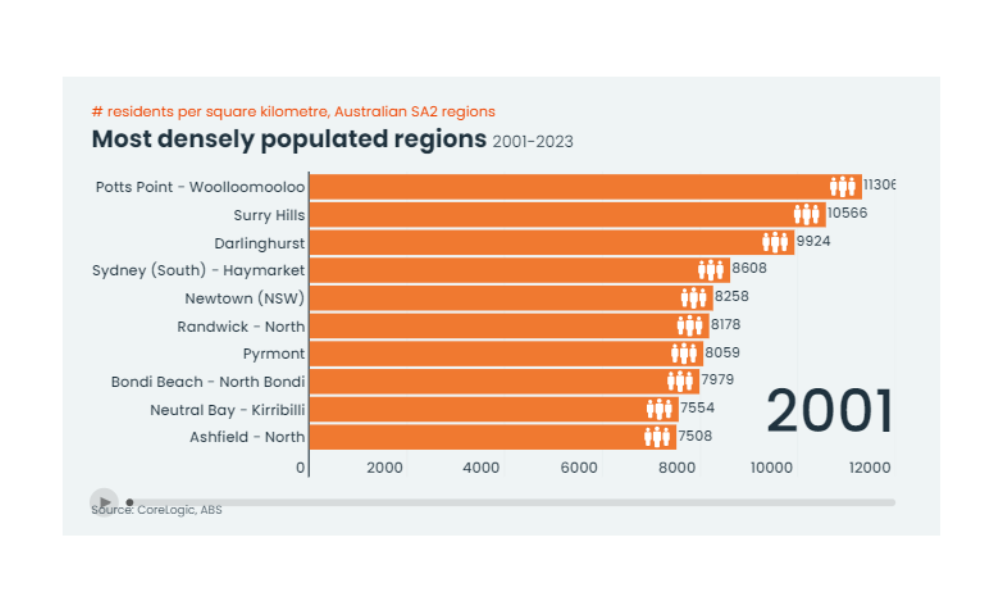

According to CoreLogic research director Tim Lawless (pictured above), the population growth in Australia is reshaping housing trends significantly.
“With Australia’s population moving through the fastest rate of growth since the 1950s, our cities and towns are naturally densifying,” Lawless said.
He said that despite Australia’s overall low population density of 3.5 people per square kilometer, the majority resides in major cities, leading to a skewed representation of density and its effects.
See LinkedIn post here.
Lawless pointed out that cities like Melbourne, Adelaide, and Sydney are seeing different patterns in the increase of population density.
“Melbourne has the highest population density across the capital cities, followed by Adelaide and Sydney,” Lawless said, adding that the types of housing available in these areas vary, influencing living and housing conditions.

According to the CoreLogic analysis, the relationship between population density and rental growth appears to be complex.
“For units, areas with a high population density have shown slightly stronger rental appreciation relative to lower population density areas,” Lawless said.
However, the trends for house rents are less straightforward, with high-density areas not necessarily correlating with higher rental growth.
Discussing property values, Lawless shed light on an intriguing trend.
“The relationship between unit values and population density is more significant, with high-density unit markets generally showing a lower level of value growth,” he said.
He explained that this could be due to periods of high unit supply impacting value appreciation negatively.
CoreLogic’s analysis suggested that investors and homeowners need to consider population density as a significant factor when assessing property values and rental potential, especially in urban centers.
“Understanding these dynamics can provide valuable insights for strategic real estate investment and development,” Lawless said.
Get the hottest and freshest mortgage news delivered right into your inbox. Subscribe now to our FREE daily newsletter.
